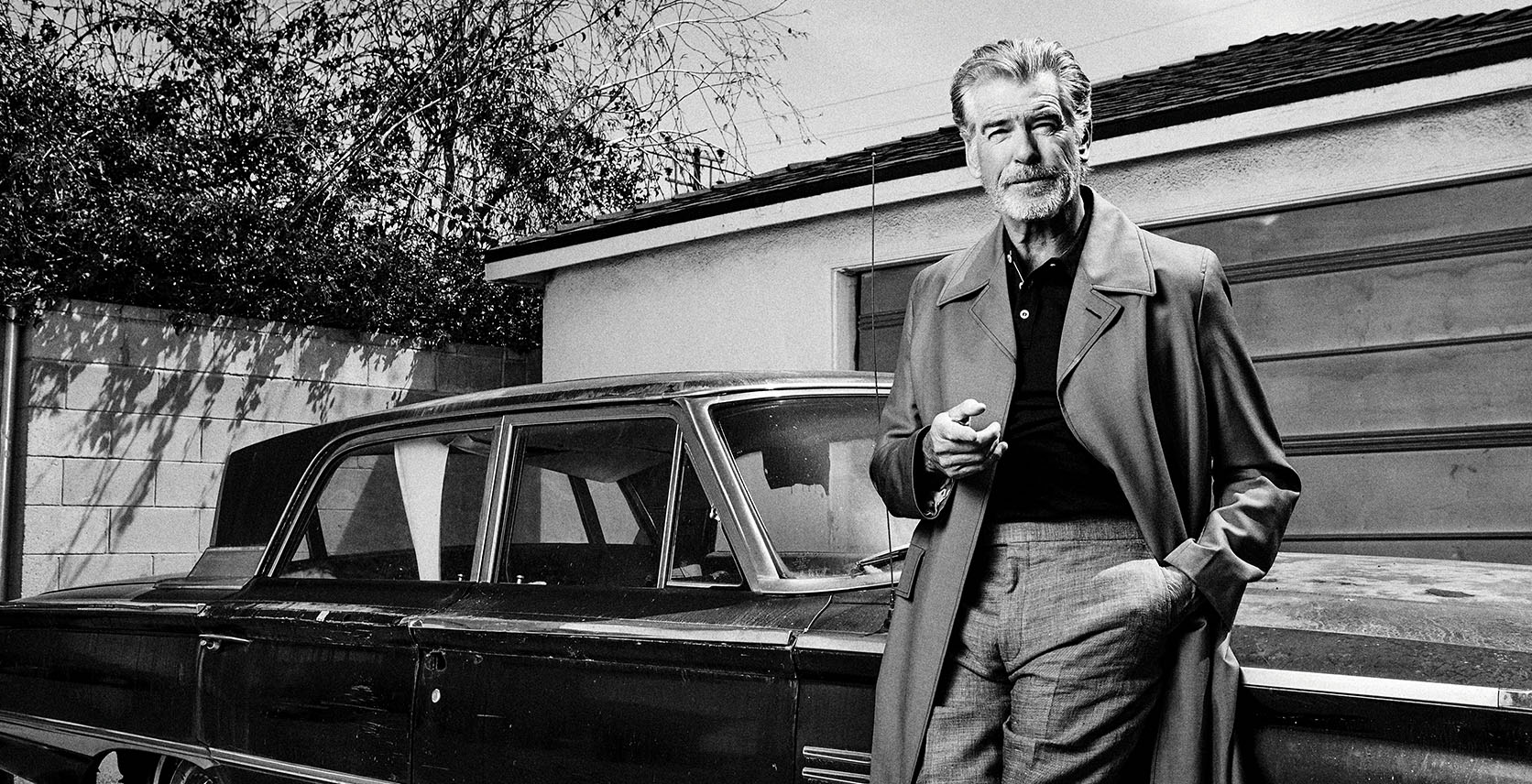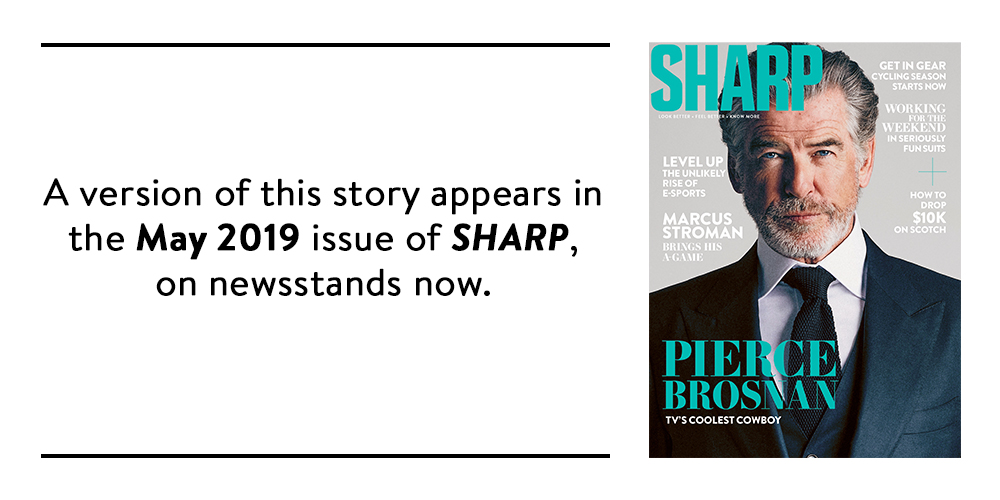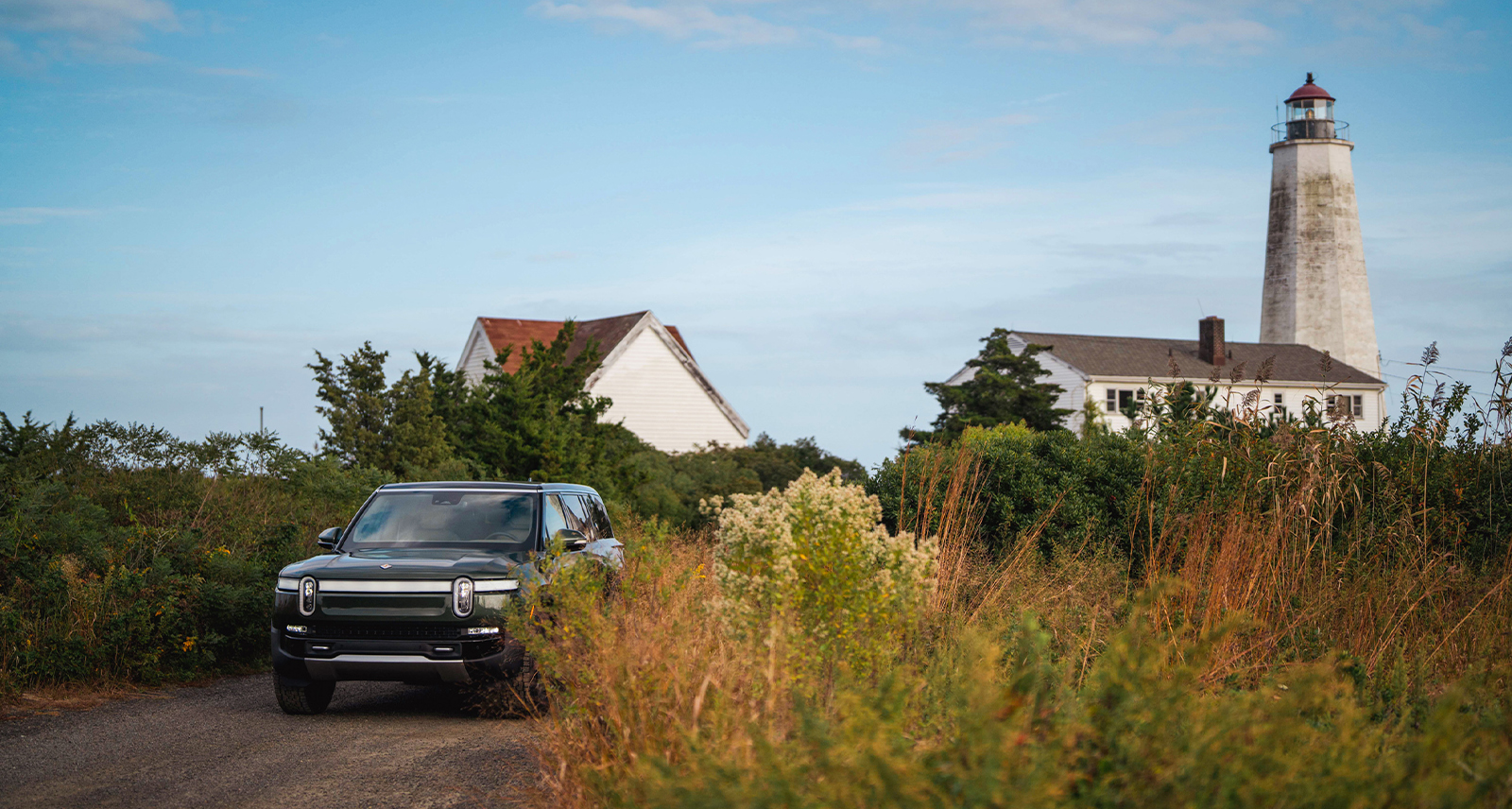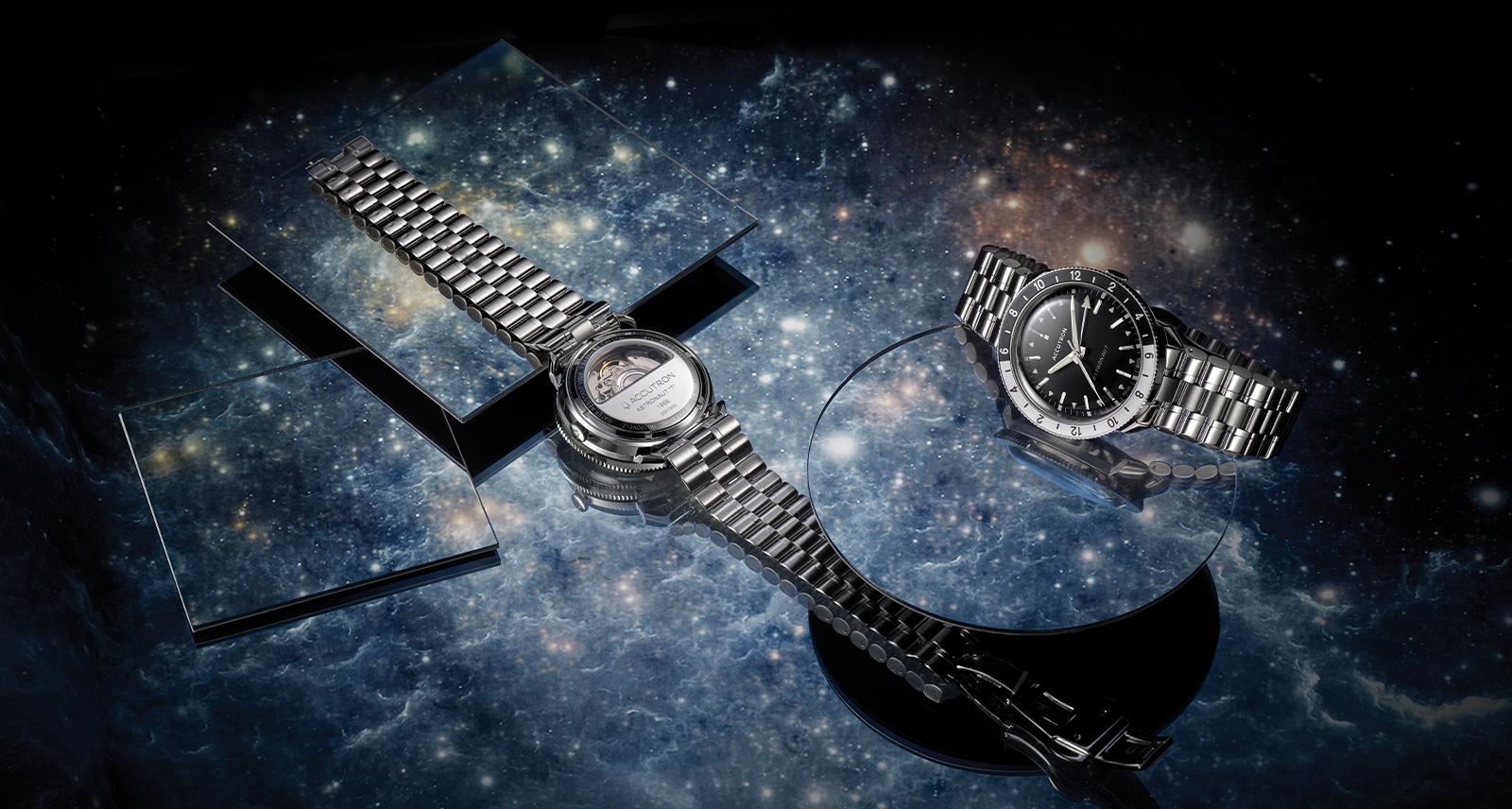How Pierce Brosnan, Suave Irishman, Became TV’s Coolest Cowboy
For Pierce Brosnan, there’s one simple trick to nailing a Texan accent.
“You start with an Irish accent,” says the 65-year-old actor, enjoying what he calls a “joyous” late March afternoon in his Malibu home. Despite being hailed by The Late Show’s Stephen Colbert as a “British icon” in 2017, Brosnan is undeniably of hearty Irish stock: raised in a country town just outside Dublin, he moved to London with his mother at age 11, then to the United States in his twenties, where he seized the star-making titular role in NBC’s detective dramedy Remington Steele.
Now, following a rich and varied movie career that includes a memorable turn as James Bond (in a four-film run from 1995’s Goldeneye to 2002’s Die Another Day), a disgraced British P.M. (in The Ghost Writer), and a singing architect (in the Mamma Mia! diptych of ABBA-inspired movie musicals), Brosnan has settled back in on the small screen for the first time in 30 years. He was drawn in by the chance to play a meaty lead: pitiless Texas oilman Eli McCullough on AMC’s epic family drama The Son, based on the Pulitzer-nominated 2013 novel by Philipp Meyer.
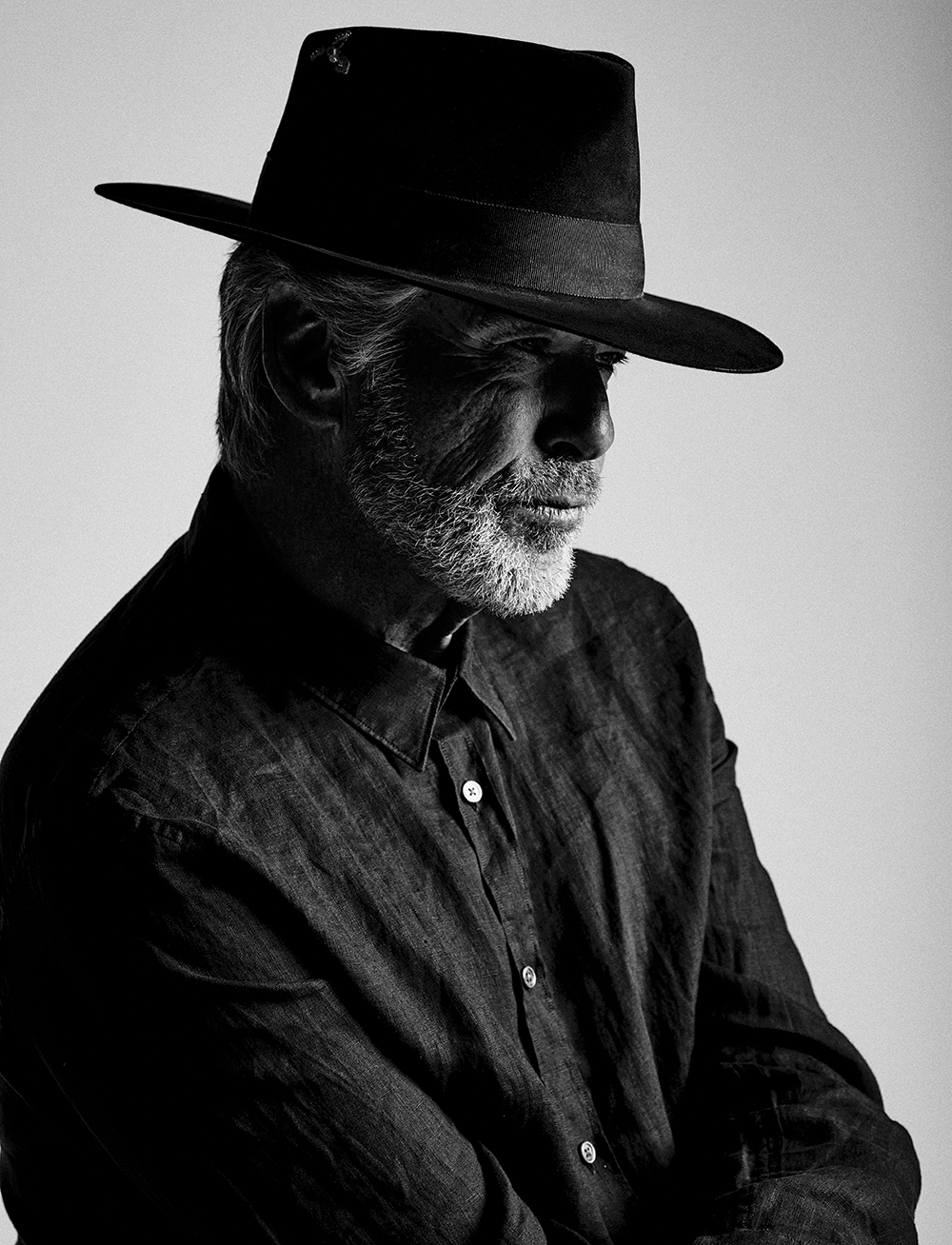
SHIRT ($200) BY JOHN VARVATOS; HAT (PIERCE’S OWN).
Yet despite his decades-long small screen sabbatical and the medium’s explosion in critical respectability in its post-Sopranos “Golden Age,” Brosnan doesn’t see much daylight between the light-hearted capering of Steele and the grim, gritty premium cable machinations of The Son. “I don’t think [television] has changed drastically,” he maintains. “It’s still the same heavy workload. TV is a leviathan of content. Now more than ever there’s a feeding frenzy: so many outlets, so many platforms for writers, actors, entrepreneurs. It’s exhilarating!”
The Son is a show that can only exist in this exhilarating epoch of television seriousness. Like AMC’s other banner dramas — Breaking Bad and Mad Men — it’s a show built around a certain relatively modern character archetype: the kind TV critic Brett Martin termed “difficult men.” The difficult men, according to Martin’s 2013 book of the same name, are characters that “conventional wisdom had once insisted, Americans would never allow into their living rooms: unhappy, morally compromised, complicated, deeply human.” And Brosnan’s McCullough certainly qualifies.
In fact, “difficult” may be underselling it. Raised by a tribe of Comanches who murdered his white settler family, Eli McCullough isn’t just difficult or complicated. He’s hard. A shrewd, violent business magnate with a deep connection to the unforgiving landscape, McCullough seems like Brosnan’s most deeply American role. But for him, it all goes back to Ireland. “The heart and soul of Eli,” Brosnan says, “is that of my Irish ancestors. The rest was conjured from various tapes of politicians and rock musicians, and just diving in, headfirst.” Brosnan has talked in the past about being stalked by the “Irish black dog” — a nod to Winston Churchill’s famous description of depression as a feral beast, shadowing him, always at his back. “The Irish definitely have a propensity for melancholia,” says Brosnan. “If you can understand it within yourself and allow yourself not to be agitated by it, you can find very good work. Being an actor is about constructing and destroying. You have to investigate yourself, and go to places where you don’t wish to go.”
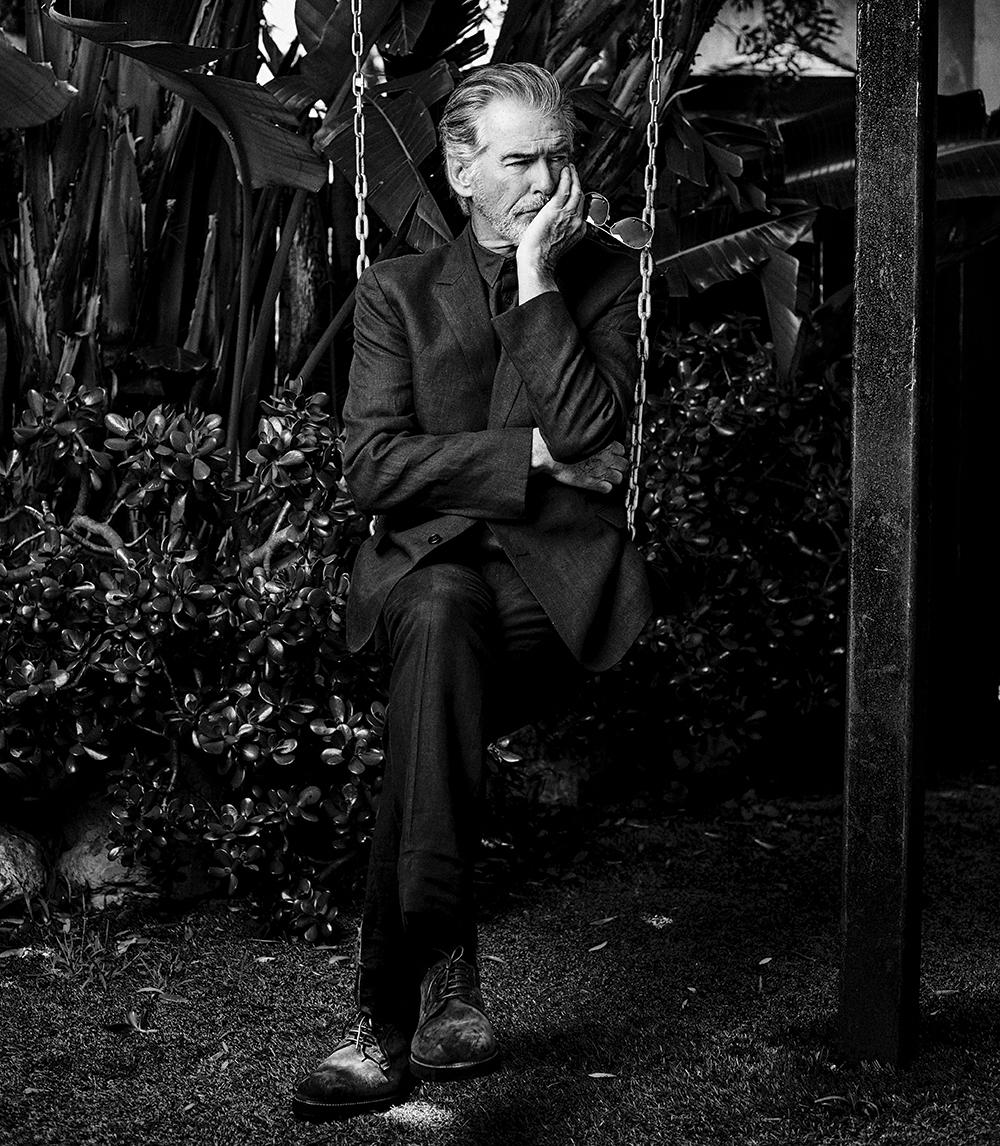
SUIT ($1, 995) BY RALPH LAUREN; SHIRT ($250) BY VI LEBREQUIN; SHOES ($760) BY TOD’S.
It’s a uniquely Irish disposition that certainly serves Brosnan on The Son, where he plays a thorny character given to moods that range between the melancholic and the out-and-out mad. “There’s an abundance of relish!” Brosnan beams. “You have a quiver full of many emotions to play — to let loose an unexpected surprise within a scene or an episode.”
Even his dialogue coach, who helped him wrap his head around the character’s distinctive Texan drawl, was Irish. “I’ve been complimented by Texans,” says Brosnan of his accent. “And I’ve accepted the compliments. I believe them!” He laughs, before checking himself with a bit of self-deprecation, which itself feels incredibly Irish: “They may have just been very polite.”
•••
Despite the well-groomed sheen of civility, the Texan that Brosnan plays on TV isn’t much for politeness. In an episode from The Son’s first season, Eli fantasizes about brutally murdering a potential business partner, sawing back his scalp in a fancy restaurant, blood splattering across the white tablecloths. Elsewhere, his business dealings with a rival Mexican oil dynasty unfold under the guise of devious chicanery, or open posse vs. posse violence. Cunning, vile, and charming in equal measure, McCullough stands as a looming spectre of America itself.
Indeed, it’s temping to read contemporary issues into The Son, especially as it heads into its second season. In its newest episodes, the show expands its scope, edging closer to the present moment by focusing on Eli’s aging granddaughter, who has inherited his rambling estate, his fortune, and his “Texas justice” approach to corporate culture.
“Being an actor, you have to investigate yourself — and go to places where you don’t wish to go.”
“I definitely think the writers have taken great advantage of the story,” says Brosnan, “and extrapolated some of the finer points and issues that are as relevant now as they were then: the borders, the temperament on either side of the border. This has been a source of deep contention, and created so much havoc. I think it will highlight, or definitely ring the bell, as to what’s happening now in our democracy and our government, and to the strong-arming involved in maintaining a border.”
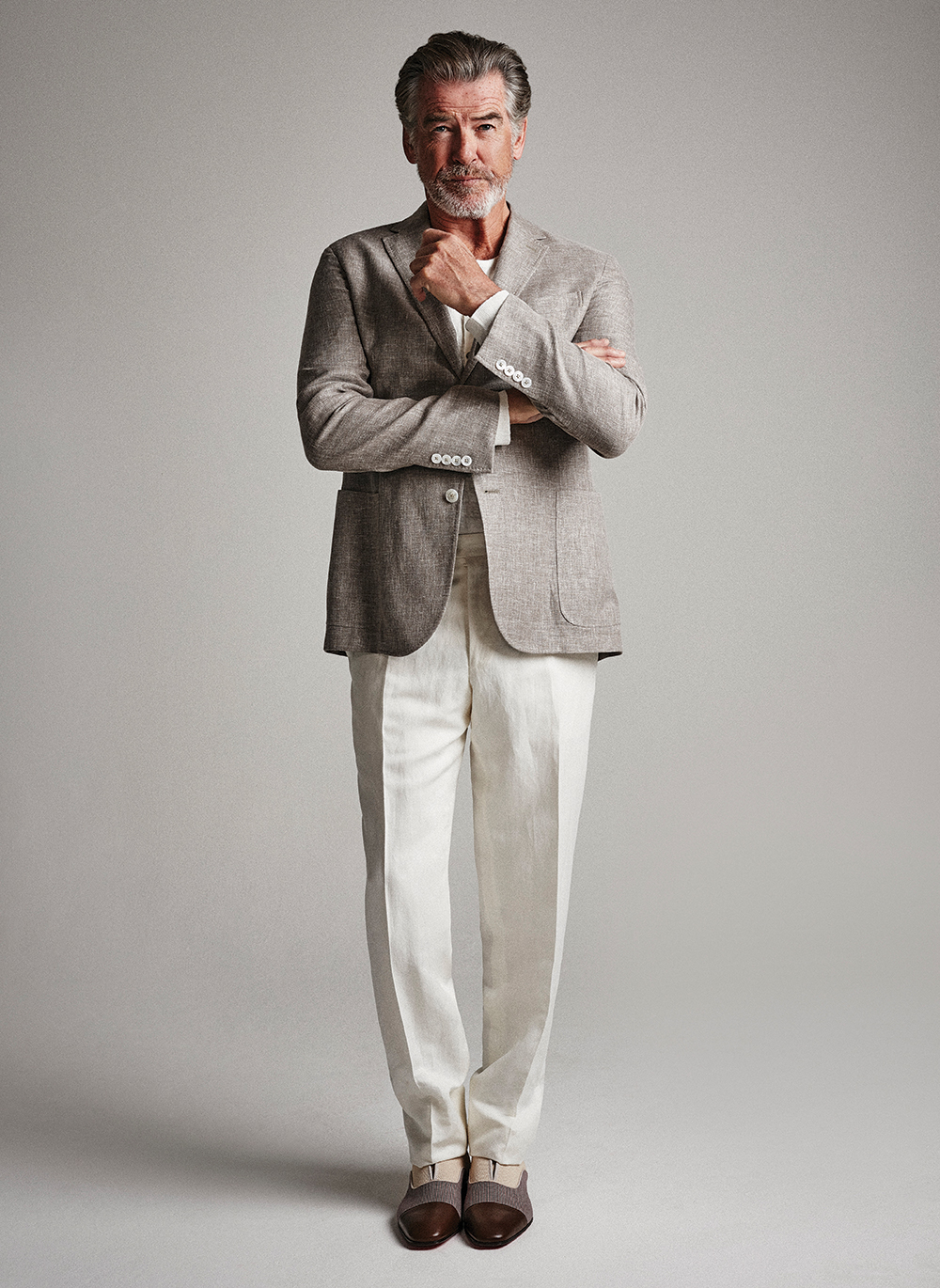
JACKET (PRICE UPON REQUEST) BY ERMENEGILDO ZEGNA; SHIRT ($300) BY JOHN VARVATOS; PANTS ($495) BY CANALI; SHOES (PRICE UPON REQUEST) BY CHRISTIAN LOUBOUTIN.
The Son thinks through these border anxieties in some compelling ways. In its 19th-century flashback sequences, it’s the white Texans whose pursuit of manifest destiny encroaches on territory occupied by the Comanche tribes. In the early 20th century, the Texans are recast as the defenders of land they purloined, beating back trespassing Mexican interests. And by the new season, when the story leaps ahead to the period of the first Gulf War, the focus shifts again to America’s cavaliering oil escapades in the Middle East.
It’s not simply about the issues of sovereignty and borders (whether open or closed) being, per the cliché, “more relevant now than ever.” It’s about the expansion of empire, and the very notion of a national project, being historically ambivalent (and even hostile) toward the presumed sanctity of borders. (And it’s not a uniquely American issue, either: the borders in Brosnan’s native isle, between Northern Ireland and the Republic of Ireland, are also hotly contested — even more so in the midst of the ongoing Brexit drama.) For Brosnan, Eli McCullough is a character similarly astride borders. Reading Meyer’s novel and the early episode treatments, the actor responded to what he calls “the emotionality of the man, and the duality of his personality: being brought up by the Comanche and surviving in the white man’s world.”
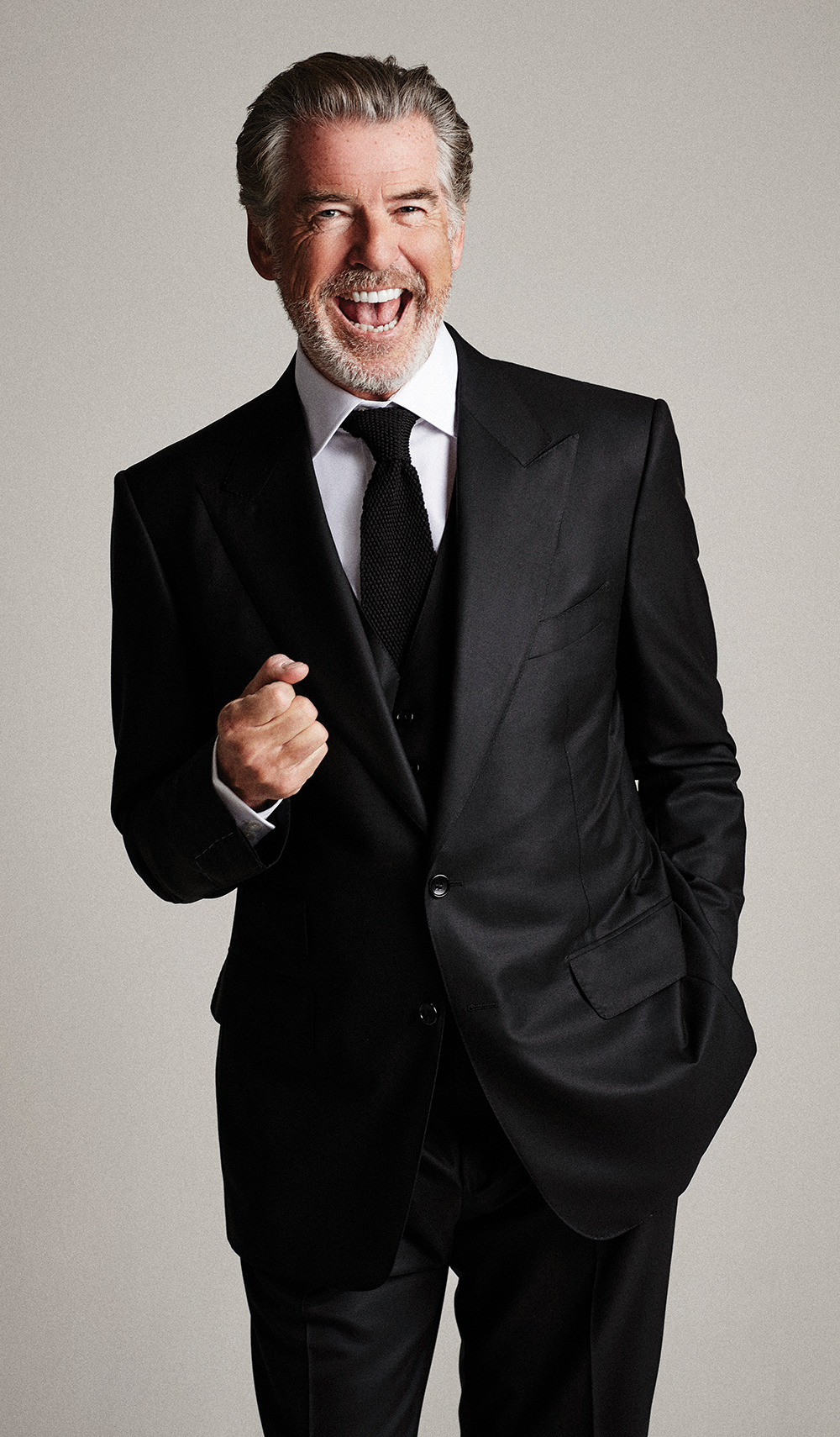
SUIT ($7,130), SHIRT ($595), AND TIE ($260) BY TOM FORD.
It’s an experience that resonated, once again, with his own history. “I know something about being an immigrant,” says Brosnan. “I know something about being an outsider.” Brosnan’s career as an actor is similarly itinerant. He’s more than the glowering, maniacal frontiersman he now plays on TV. He’s roved between smirking super-spies, seductive Lotharios (in the remake of The Thomas Crown Affair and, perhaps to a lesser extent, as the romantic foil to Robin Williams’s cross-dressing nanny in Mrs. Doubtfire), and the irrepressibly charming, singing, dancing Sam Carmichael in the Mamma Mia! movies. It was that last role, Brosnan insists, the pushed him furthest out of his comfort zone, given his reservations about his own vocal chops. He rehearsed with a music director, naturally. But he also started cranking the ABBA hits on repeat, singing along enthusiastically as he drove his kids to school. “I’d be belting out ‘SOS’ and they’d be telling me to be quiet!” he laughs. “They had a great time making fun of me.”
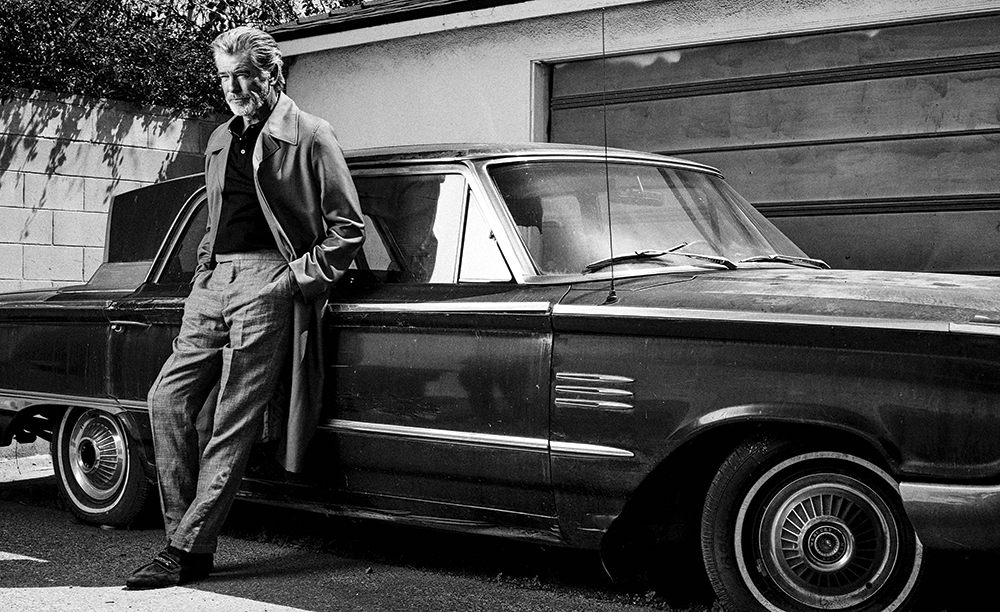
JACKET (PRICE UPON REQUEST) BY DUNHILL; SHIRT ($225) BY MONCLER; PANTS ($595) BY RALPH LAUREN; SHOES ($890) BY TOM FORD.
It’s an irresistible image: 007 behind the wheel howling “Voulez-Vous” while his children flush beet-red with embarrassment. And it’s a far cry from The Son’s scenes of a scowling Brosnan in period facial hair, chopping off the top of a rival’s head. But even the members of ABBA — with their internal romantic turmoil and peppy songs of love lost — are no strangers to melancholia, trailed by their own packs of nagging uncertainties. “I think we all have our own black dog,” says Brosnan reflectively. “It’s these doubts. It’s uncertainty, which as an actor you always have. ‘Am I good enough?’; ‘Is this good enough?’ It’s part of the mechanics of being an actor.”
And despite being a Hollywood-handsome leading man, he confesses he watches The Son with “half-an-eye,” still finding it difficult to see himself onscreen. It may be the sort of mock-humility that comes easily to an actor with such a long resumé, and plenty of laurels to rest on. But it speaks to something else about Brosnan’s character: a temperament that lurks just beneath his protestations of joyfulness, that shades his stereotypical image as a wryly smiling, debonair sophisticate with some welcome — and recognizable — darkness.
